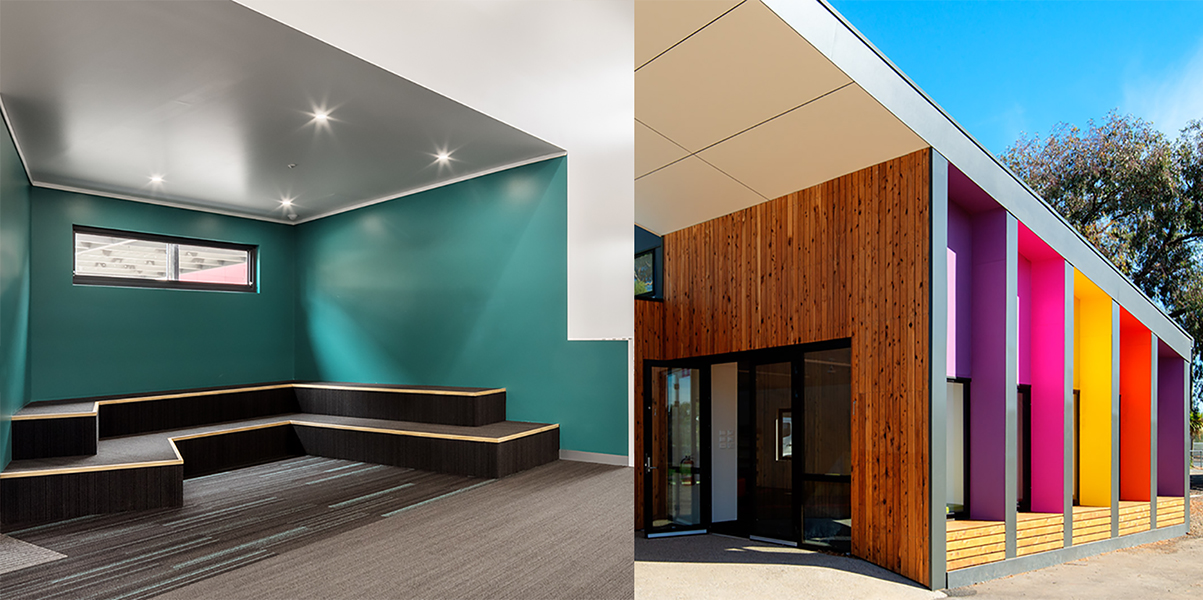It was a full house again this year for the Victorian Education Infrastructure Briefing held on 21 May 2018 at the Park Hyatt auditorium. Builders, architects and other consultants gathered to hear from the Victorian School Building Authority (VSBA) about how it will deliver the unparalleled school infrastructure program.
Opening this annual forum, Victoria’s education Minister, the Honourable James Merlino MP talked about the additional budget funding of $685 million:
- $265 million for planning and building new schools to meet population growth, taking to 56 the number of new schools delivered in the last three budgets
- $195 million for upgrading and modernising 59 regional schools and 49 metropolitan schools
- $44.4 million for upgrades to special schools
- $75 million for new relocatable classrooms to meet immediate demand.
VSBA’s CEO, Chris Keating, said the school infrastructure program is on “absolute rockets”. Reflecting on the challenges of delivering the school building program as fast and as efficiently as possible, he said the complexity is increasing in inner and middle ring areas – the degree of difficulty requires thinking laterally about how to design where there are limits on open areas and the space needs to function as a community facility seven days a week. Mr Keating spoke about the focus on building and design excellence, building the best schools we can in a way that is best for Victorians. He said it’s no longer enough to meet the time, quality and budget objectives but VSBA is working hard to ensure it understands what staff and students and families think about the place they are in, and VSBA is sharing ideas with them.
A project presented to illustrate this was this The Shepparton Education Plan. Developed in conjunction with education experts and the local community, the plan merges four schools onto one site. The plan is to transform student outcomes by empowering all students to learn and achieve, experience high quality teaching practices and the best conditions for learning which equip them with the knowledge, skills and dispositions for lifelong learning and shaping the world around them. The school is located near local businesses, which opens up work experience opportunities, and near the University and TAFE, giving students access to hands-on practical training like mechanics, hospitality, digital design and web design. Offering senior secondary programs linked to university studies also builds a pathway to tertiary studies.
As an example of a cost-effective and life-changing innovation, a video was presented about the Roger hearing augmentation technology that has transformed the lives of hearing-impaired students and their teachers.
Tom Kirkland, Executive Director of VSBA’s Delivery Branch explained that VSBA is increasing its pool of suppliers:
- a 16% increase in new architects
- a 47% increase in new builders.
Noting that this increase is expected to continue, he invited eligible interested suppliers to become prequalified on the DTF Construction Supplier Register (CSR). Changing the VSBA approach to inviting tenders, Mr Kirkland advised that consultants will have a one in three chance of winning a tender whilst contractors will have a one in four chance. This is part of VSBA’s response to the construction market being “very hot” with strong competition from other government and private sector projects. Because the market is so hot, VSBA is taking a more active role directly engaging the QS and having more transparency about the cost plan through the design gates, promoting a conscious understanding of core and options rather than embedding the options into the built form – if the outcome is unfavourable, the core school can still be built.
Mr Kirkland reminded consultants about the Technical Advice Panel (TAP) that VSBA has established to streamline the process it uses to engage CSR consultants.
Transitioning to a new portfolio management model over the next two years, VSBA will insource responsibility for project management and establish a governing framework for operational programs.
Jessica Trinder, Director of the VSBA’s Strategy Branch, launched the new Building Quality Standards Handbook, setting out minimum quality criteria for all VSBA building projects, including new construction, refurbishment, and maintenance works. She also discussed the review of the school facilities area schedules used to establish space allocation for schools based on school type and enrolments.
Ms Trinder spoke about VSBA’s $200 million permanent modular school building program, offering the latest in construction technology and an efficient way to replace asbestos-containing buildings. Taking less time in planning and on-site construction, and being sustainable and innovatively designed, these buildings have a comparable lifespan to traditional in-situ construction. Ms Trinder noted that in future entire new schools could utilise off-site modular construction.
The Victorian government Social Procurement Framework (SPF) launched on 26 April 2018 was also discussed:
- lower-value procurements will encourage and favour the generation of social value to ensure that all Victorians including indigenous and those experiencing disadvantage benefit from the infrastructure investment
- higher-value procurements will have formal Social Procurement Plans to achieve this.
Applicable to projects commencing from July 2019, the Department is developing a Social Procurement Strategy to incorporate the SPF into policy, processes and templates for the procurement of goods, services and construction.
The final speaker was Colin Simpson the principal of the new Richmond High School and an alumnus of the former school. Drawing on his experience as principal of the Victorian College of the Arts Secondary School from 2004-2016, where he oversaw the construction of the award winning Southbank campus, Mr Simpson spoke of the benefits of design excellence and clever use of materials that reduce ongoing maintenance costs.
* * *
Banner photographs (L-R): BHAPM / Fleetwood / Brand Architects and BHAPM / ARKiT / Gavin John (Photographer)
Written by
[
]
 CourtHeath Consulting
CourtHeath Consulting CourtHeath Consulting
CourtHeath Consulting